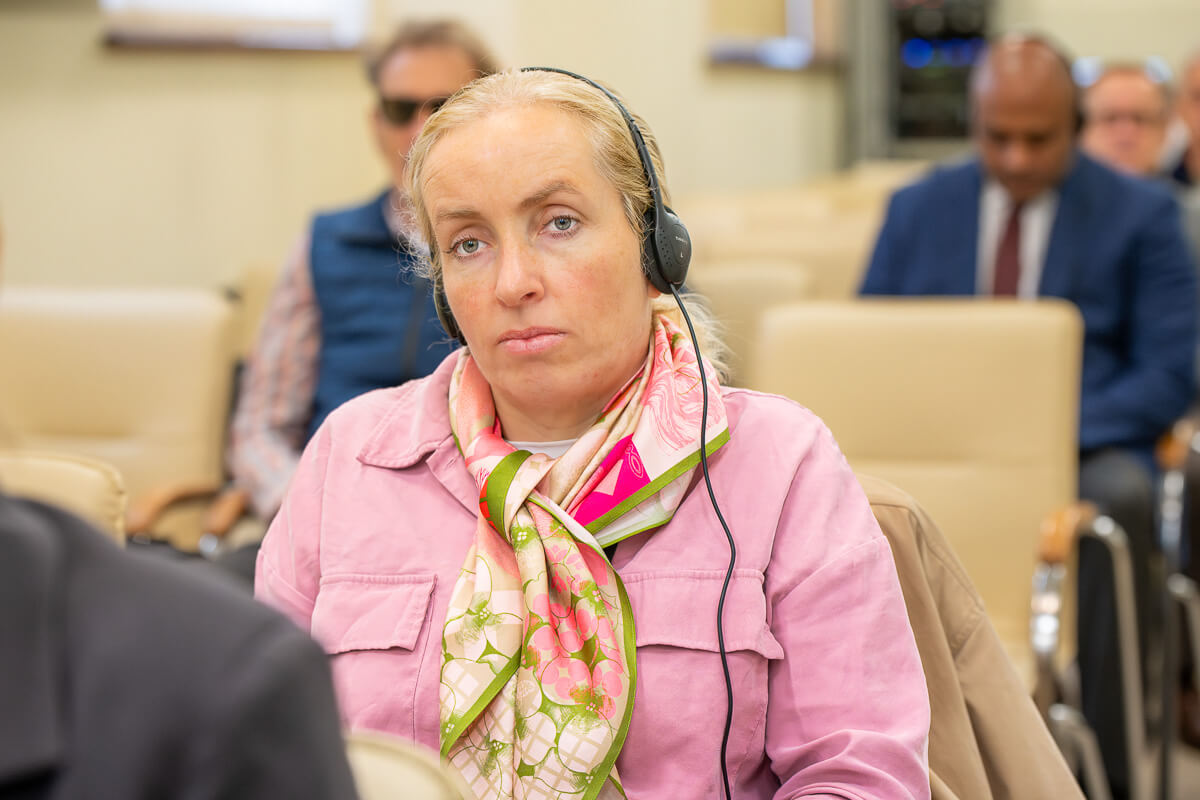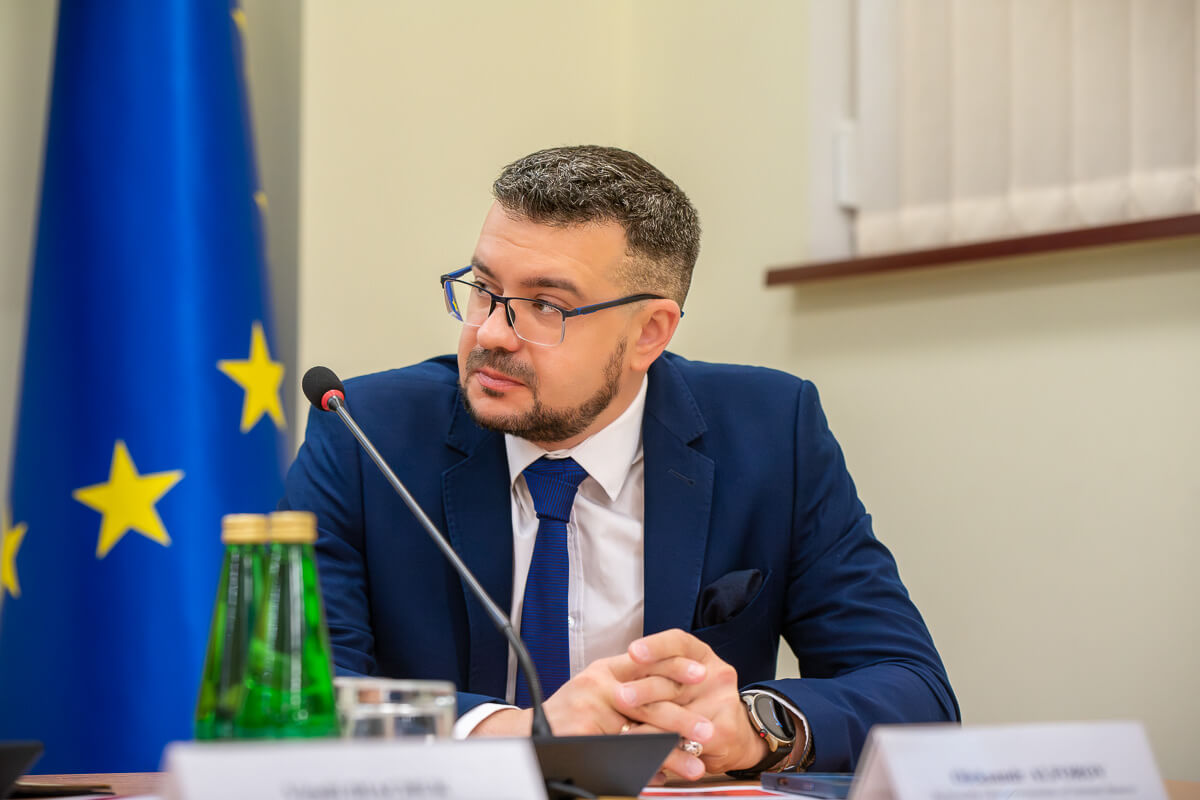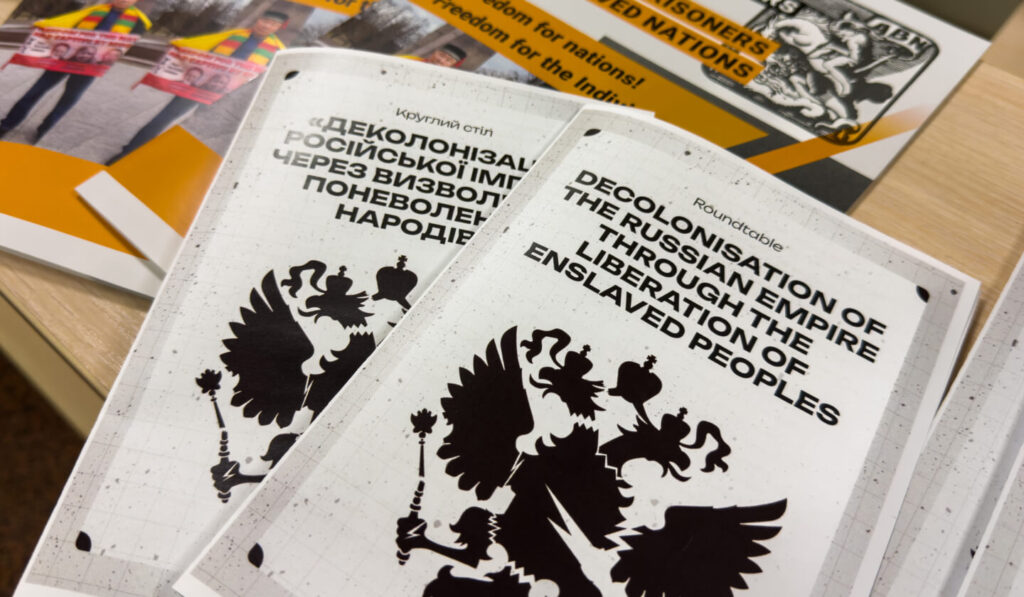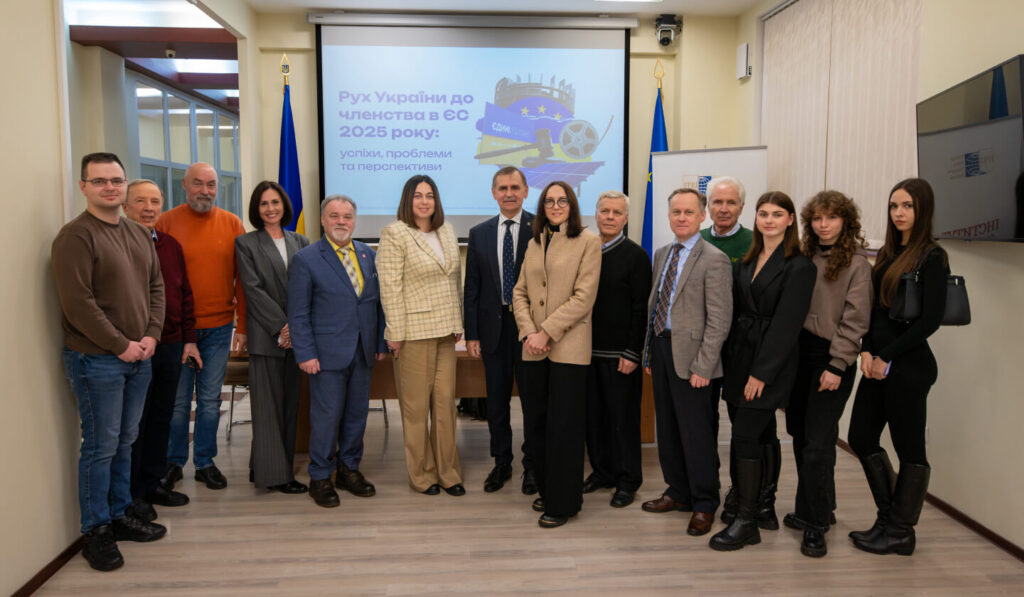On Tuesday, 30 September 2025, the Media Center of the State Enterprise ‘Directorate-General for Rendering Services to Diplomatic Missions’ (GDIP) hosted a roundtable entitled The Kremlin’s ‘Fifth Column’ in Europe: Working Methods and Countermeasures.
The Centre for russian Studies, with the support of the State Enterprise ‘Directorate-General for Rendering Services to Diplomatic Missions’, organised the event.
Volodymyr roundtable, Ambassador Extraordinary and Plenipotentiary, Minister for Foreign Affairs of Ukraine (2007–9), Head of the Centre for russian Studies, moderated the event.
He stressed in his opening remarks:
‘One of russia’s “spiritual bonds” is its hatred of everything Western. This hatred is historical, dating back to the foundation of the muscovite tsardom and remaining unchanged to this day. It stems from the conviction that everything foreign is alien, frightening, and evil — therefore, it must be destroyed. Muscovy has always sought to destroy its European adversaries one by one. Thus, when the West unites, for muscovy this becomes an exceptionally dreadful fact, and it therefore tries to divide its enemy, as it is much easier to fight individually. Today, we see that one of the main objectives of russia’s foreign policy is precisely the disintegration of the EU and NATO. To this end, russia spares no money in fuelling separatist tendencies. How to counter this and what should be done — that is the subject of this roundtable’.

Among the speakers were: Oleksandr Motsyk, Ambassador Extraordinary and Plenipotentiary; Oleksandr Alforov, Head of the Ukrainian Institute of National Memory; Serhii Herasymchuk, Deputy Executive Director of the Ukrainian Prism think tank; Vitalii Diachuk, Analyst at the Institute of Central European Strategy and the Re:Open Ukraine project; Dmytro Konyshev, President of the Ukrainian-Slovak Business Agency (Bratislava), former advisor to the Embassy of Ukraine in Slovakia.
The speakers addressed a number of conceptual issues, including: the disintegration of the EU and NATO as russia’s main foreign policy goal; the principal instruments of russia’s influence on Western societies; the actors and executors of the kremlin’s strategy and their achievements so far; the gradual transformation of the West’s stance from defence to offence; and the means of countering russian proxies in both the Ukrainian and European contexts.
Oleksandr Motsyk spoke about the network of russian intelligence services, the practical instruments of spreading russian narratives worldwide, and the distortion of the notion of ‘international law’ in russia, which diverges from its interpretation in the civilised world:
‘At the head of the russian state stands an international criminal, a product of the secret services. The model of state and foreign policy that putin is constructing is a special operation on a planetary scale, carried out by the same russian secret services. […] In the context of international law, one can say that for russia it simply does not exist. We must work systematically with our Western partners, convincing them not to perceive russia as they do other countries. One must deal with russia using the same methods that it itself employs — only then will putin understand that he may have to change his course, or else lose this war. Europe’s potential surpasses russia’s; it simply needs to be unlocked. Europe is not ready at present to fight against russia’s criminal network. Clearly, European legislation must be adjusted. NATO also requires reform, aimed specifically at strengthening the Alliance’s decision-making, particularly regarding the practical application of Article 5’.
During his intervention, Oleksandr Alforov observed that interpretations of the Second World War and of Ukraine’s role in it involve distortions. Ukraine, at that time part of the USSR, had no influence on the decision-making centre in moscow. Because of this, events such as the Koriukivka tragedy were ‘lost’ in history, and russia has even altered the official date of the war’s outbreak:
‘Ukraine was unlucky in that war. Not being citizens of an independent state, Ukrainians fought in the Soviet army, as well as in other armies and partisan groups.’ In the context of restoring and preserving historical memory, Alforov added: ‘We must recognise that in the Second World War Ukraine was one of the most devastated states in terms of economic losses and human casualties. Everything related to the Second World War constitutes that unpunished evil which allows russia to continue to exist today, for its entire ideology is built upon the trauma of losing the Soviet Union as the victor of the Second World War’.
Serhii Herasymchuk spoke about the polarisation of governments in Central Europe and the consequences for the European Union:
‘We are dealing with a pan-European trend, especially noticeable in Central Europe. We must speak of the region as a whole, of the polarisation between right and left, cities and villages. All these dividing lines and the polarisation of societies obviously benefit russia, which has long sought to secure pro-russian governments in these countries. Yet russia always keeps a Plan B: if a government is not pro-russian, then let it at least be weak. If a state cannot bow to moscow, let it become a burden for Brussels. As a result, this weakens not only the EU’s unity but also its ability to remain a force for solidarity — which, in turn, may lead to centrifugal tendencies within the Union. Currently, these remain powerful centres of economic and political gravity. But the more governments that are either weak or pro-russian emerge, the greater the challenges the EU will face’.
Vitalii Diachuk explained how russian propaganda amplifies Hungary’s claims against Ukraine regarding territories and alleged discrimination against its national minority. He stressed the need to distinguish between Hungarian society, the Hungarian government, and minority organisations, which sometimes articulate different narratives, while also emphasising Hungarian solidarity with Ukrainians:
‘It is essential that Hungarians see and know what is really happening in Ukraine. Only then can we build a narrative. This is precisely how we can shape Ukraine’s image abroad, including in Hungary — through civic initiatives such as visits of Hungarians to Ukraine, organisation of meetings, broadcasting the life of the Hungarian community in Ukraine, informing about the work of the Armed Forces and the way Europe, Hungary included, already supports the Ukrainian Armed Forces, thereby helping to safeguard Hungary’s own security’.
Dmytro Konyshev spoke about Slovakia’s inferiority complex, the motives behind Prime Minister Robert Fico’s political campaign, and the weakness of Ukraine’s engagement with Slovak society in contrast to russia’s proactive efforts, which skillfully influence remote communities. He argued that the Ukrainian side must add an emotional dimension by inviting Slovak representatives to Kyiv and demonstrating the consequences of russian aggression:
‘We must hold meetings not only with Slovakia’s pro-Ukrainian opposition. We must not seek to persuade those who are already persuaded. Instead, we must engage with pro-government Slovak MPs, civic representatives inclined towards russia, media actors who are anti-Ukrainian and, let us say, pro-russian. Both the Embassy of Ukraine and Ukrainian civic organisations should focus their activities on this’.
Diplomats, scholars, lecturers, and university students actively participated in the discussion.











